I'm going to take a moment to share with you the benefits of three things I enjoy: procrastinating, internetting, and paper writing. These three activities can complement each other in surprising ways. Here's the secret: use the time you procrastinate on the internet to think about writing. Change the way you think about research: it's just as entertaining and satisfying as scrolling through every page of texts from last night. For example, I am writing a research paper on language in (and outside of) the Internet, so right now I am constantly reading and writing about the Internet; if I try to procrastinate, I still get to think about my project. Here are some websites I have found most useful in both procrastination and getting a fascinating look into writing and language on the Internet. Everyone, yes, even @agnesscott has a twitter. A fun example of an average twitter account is @PeteASCDining. Let's look at what (not) to do on twitter using @PeteASCDining as an example. Pete's tweets are true to the Bio on the right panel: "All about food at Agnes Scott College"; however, he doesn't make good use of #reallysweethashtags. He also doesn't cite his source to the claim "Fried chicken is the most popular meal ordered in restaurants in the United States". He could have used tinyurl to shorten a link to let us know where he got his information from. Given that one has to be concise when using twitter, it's important to be as clear as possible. When Pete follows his former sentence with "The next in popular is the Evans Mozzarella Sandwich!", he is not being very clear. He could have said that "At ASC, the most popular is..." or at least "The next in popularity..." Pete does use an internet staple--an emoticon--in an earlier tweet to convey emotion and give the reader a sense of tone. Twitter was created for producing a condensed amount of language, to say something of value with only 140 characters. While you can't embed pictures within the “tweets”, links to other webpages, images, audio files, etc. are commonly fit (usually with sites like tinyurl) into the 140 character limit. Another feature is “re-tweeting”, a safe way to quote someone without plagiarizing them. #Hashtags appear to have gained their own grammatical value within the structure of twitter; they're a way to “tag” or categorize a tweet (or other types of posts on the internet). On the internet in general, "tags" are usually one-word descriptions used to make searching easier without pre-established categories. On twitter, #hashtags have also been used as a way to indicate one's inner thoughts, the subject of the tweet, an aside, or to illustrate some kind of irony or humor.
A positive aspect of this growing social networking/information sharing site is its insistence on brevity. It is difficult to get across as much meaning as possible within the strict limit of 140 characters. This may have something to do with the #proliferation of the hashtag as a shortened way of conveying emotion or other context to the tweet. With tumblr., there is no character limit for your "tumblelog", yet remains (at least on wikipedia) under the category of “micro blogging” as is twitter. It also seems to serve as a social networking site as well. There is a huge variety in content on tumblr. From libraryland to the daily what to curate to a small and creepy blog, there's a seemingly endless supply of images, video, audio files, quotes, text and links to occupy your time (there's even rumors of an underground Agnes Scott blog somewhere on tumblr.). And the beauty of tumblr. is, if there isn't a blog of your favorite band, you can always make one yourself! While "tumbling", you may find yourself finding inspiration for assignments, reading a particularly poignant quote (as one may find on this student's tumblelog), or bouncing ideas off of your "followers" through the magic of comments and "reblogging". I have seen many a student post about their current project and get feedback from their friends on tumblr. Google buzz is a new (as of February 2010) social networking/messaging tool—what makes it different? If you have a Gmail account, Google buzz is automatically integrated into the side panel of your home page. While checking the 9,001th ASC email of the day (you do forward your emails to Gmail, right?) you can see what the "buzz" is about. Google buzz be used to share posts from your Google reader, links, images, videos; users can comment, and these comments are put into “conversations” in your inbox. Of course, you could just skip all of this and just write your paper, but if you find yourself gravitating toward these tempting websites, now you have an idea of how to use your fun time for your academic benefit. Happy surfing :-) ---------------------------------------------------------------------------------------------------- Cory Struder is a junior English Literature major and a tutor in the Writing Center.
8 Comments
- - - - - Finals are hard on everyone but don’t give up. While the next two weeks don’t determine your future they do have a say. J ----------------------------------------------------------------------------------- Nadi Nuhu is a sophomore biology major and a tutor in the Writing Center. So, it’s that time of the year again. The smell of summer is in the ai
Location: Across from the MARTA station in downtown Decatur Pros: Java Monkey is very well known and popular in the Agnes Scott and Decatur communities. Its hip atmosphere and delicious food/wine bar make this a good choice for writing a paper. Its close proximity to the school and late hours are also a bonus. Pros: Café Cliché has great food, ice cream, and ChocoLatte Location: North Decatur Road, next to Rainbow Natural Foods Cons: It’s probably best to have a car to get to --------------------------------------------------------------------------- Racheal Jenkins is a senior English Literature major and a tutor in the Writing Center No, I do not advocate procrastination. Yes, I am fully aware that writing a clear, effective essay takes time. But let's face it- most of us have found ourselves in situations where we are too busy to spend weeks upon weeks plotting and crafting the perfect paper. Whether or not we like it, there are times when it's going to get written the night before it's due. If this is the case, don't panic! There are some things you can do to make sure the final product is not a mushy pile of nonsense.
-Calm down. Stress is a dangerous enemy to the writing process. When I have a million thoughts and anxieties running through my head, there is no way I can accomplish anything. This problem is especially acute when I don't have much time to work with. To drive away stress, I suggest taking a few minutes to relax before you even consider putting pen to paper. Even if you feel like you are wasting time, it will pay off in the end. -Just write. I cannot count the number of times that I have sat in front of a computer screen for hours, typing and erasing the same words over and over again. This is not only unproductive, but also incredibly frustrating. After a while, I begin to think that I am no longer capable of forming a single coherent sentence, let alone enough of them to fill an entire paper. Recently, I have employed a new tactic. I force myself to write. Even if nothing I say makes any sense, my motivation is boosted tenfold when I see that I am making process. More often than not, the result is much better than expected, and only a few changes are needed at the end. -Keep it simple. If you're planning on pounding out a last-minute paper, chances are that you won't have much time to revise and rewrite. For this reason, it is best to organize it in the simplest way possible. Although the finished product may not be as creative as you would like, you will have a much better chance of not changing your mind and starting from scratch at the last minute. Use your instincts and group your ideas together in the way that makes the most sense to you. Save more complex, subtle styles of organization for essays you have plenty of time to finish. -Thesis, thesis, thesis Your thesis is the most important part of your paper, and even if you are in a hurry, it deserves some significant time. Personally, if I can manage to think of a really strong thesis, my paper tends to write itself. On the other hand, if I settle for a sub-par thesis, writing the paper is an excruciating experience. So even if you only have a few hours to write a paper, take as much time as you need thinking up a convincing thesis. Then, all you have to do is stick with it and relate all of your points back to it. While these tips may help you complete an assignment or two satisfactorily, remember that writing is a process. That means that it should not be accomplished in one night. Try as much as you can to budget your time so that you can fully embrace this process. Now get back to work, I know you're procrastinating! __ Kelsey Clodfelter is a sophomore Writing Center tutor. So your professor has assigned a paper about Tommy Wiseau's masterpiece · · · · One of the reasons I decided to come to Agnes Scott was because of its emphasis on writing—writing across disciplines, writing as a thought process, writing for pleasure and for communication. Imagine my chagrin, then, when I arrived and was forced to do all of these pre-writing assignments before I could even get into “actually writing.” A writing assignment would be dangled in front of me, and before I could excitedly reach up to grab it, various and sundry other assignments would be handed to me to do before I could begin writing. Most people reading this blog will groan along with me when I throw out the phrases “annotated bibliography,” “working thesis,” and “outline.” Surely no one except lowly undergraduate students can be subjected to such torturous assignments….. right?
After I started working as a tutor, these plaguing assignments only seemed to grow worse. Not only was I subjected to my own pre-writing tasks, but other, equally-upset writers kept coming in with questions about Roman numeral-ization for outlines, or stylistic concerns regarding double- or single-spacing in the annotations of annotated bibliographies. Really, what was the point? I mean, I guess it was a good thing that there were more assignments since it meant that my entire grade did not hang in the balance of one paper, but by this point, I was almost willing to risk it. Because I am a good student and fairly grade-oriented, I never kvetched aloud—just quietly to myself. I learned to do these assignments to the professor’s satisfaction and simply decided to cut my losses and get over it. Then, in my senior year, a revelation came to me in the form of more academic freedom. Many of my professors decided that I was far enough along in my academic career that these pre-writing assignments were not necessary. If I wanted to hang myself out to dry, that was absolutely fine with them. I rejoiced! Good fortune and happiness abounded! After the celebrations finally subsided, though, I realized that beginning the writing process was actually very difficult without… well, a process. For years, I had relied on the much-hated outlines and annotated bibliographies as a low-stress way for me to begin to write. Without these steps leading up to writing, it was like trying to jump across a vast distance in a single bound. I was suddenly very aware that those pre-writing assignments had been for my benefit, not the benefit of my professors. I could put in or get out of them as much as I wanted. Suddenly, all the stress of stylistics and mechanics of whether an annotated bibliography needed to be in full sentences or could be left in sentence fragments fell away. I am a total convert now. Whenever I have writers come into the Center who have been given free reign with their papers, I encourage them to use forms of pre-writing to get their thoughts collected. It makes writing papers a much more efficient (and possibly) rewarding experience. Cater the pre-writing exercises to fit your needs as a student, not the perceived needs of the professor. Most of the time, professors can tell when you are doing the assignment for the grade, and when you are pre-writing to help yourself, and almost always, they appreciate pre-writing for yourself. If you’ve never done a pre-writing exercise for yourself, I highly recommend trying it. It may not be as constraining as you initially thought. Most of the creative writing Scotties that I know on campus are lovers of Fiction. They flock to Dr. Dermont’s workshop courses, and all of them seem to be blessed with the ability to create characters, scenarios, dialogue and other important details, perhaps based on their own lives or real-life situations, but also from their own creative imaginations.
For me, the journey of writing creatively has been quite different: my Fiction writing class in high school proved that this genre is one I should probably stay far away from. My very first short story was essentially a written copy of the 1993 film The Sandlot, following a young boy who moved to a new town and had to bond with new friends in the unfamiliar territory of baseball. No one caught on to my imitation, but I remember a sense of deep let down that I had been so unsuccessful at creating a world and at least somewhat original characters. At this moment, I turned to nonfiction. A year later, my English teacher assigned the task of writing: “The Story of My Life in 3,500 Words or Less,” the title of an essay originally written by Nora Ephron. I spent days, followed by weeks, writing, tweaking, changing wording, and bringing my life to life on the page. The assignment was exhilarating to me, because I was finally able to tell the story of someone I actually knew: Myself. Looking back on it, “The Story of My Life in 3,500 Words or Less” probably isn’t the best thing I’ve ever written, but it put me on a path to learning to invent the story of myself in many different ways, in different voices and different styles. My roommate told me that she shares a similar reluctance to delve into creative writing, because she doubts her ability to create believable characters and interesting realities and plots. So I asked her: Who is the character that you know the best? I believe that this is the true beauty of nonfiction, particularly the personal essay. Although the foundation stays the same the whole time you write it, the perspective and approach can evolve to fit the situation. For others who may be down on creative writing, I encourage you to explore and experiment with different genres, including creative nonfiction, especially if you haven’t tried it. Agnes Scott offers an Introductory Nonfiction Workshop class in the Spring that allows students to experiment with several different types of nonfiction writing, including journalism, memoir, and personal essay. The key that I have found so far as being successful for the creation of a good piece of nonfiction is in the details. But the best thing of all is that you don’t have to invent them—you just have to write them down! Ah, graduate school. It’s one of the futures that Agnes Scott College likes to brag about to prospective students. To be fair, ASC has good reason: many Agnes Scott alumnae go on to get higher degrees, and women’s colleges in general inspire proportionally more students to continue their education than co-educational counterparts.
In this economic black hole that recent alumnae, current seniors, and at least juniors are facing, graduate school seems like a tempting alternative to facing a sparse job market. So you know, you are not the only person who has had this seemingly marvelous idea. When I applied to Yale University’s English Ph.D. program, I received a rejection letter letting me know that I had been one of 10,400 applicants. There are a lot of people out there trying to get an advanced degree, and I was one of at least 10,000 people interested in a doctorate in English literature. Applying to grad school is an incredibly exhausting experience. (For the moment, let’s neglect that grad school itself is even harder.) Applications involve a lot of scrambling for transcripts, recommendations, sample work, resumes, and personal statements. Every element of your application requires you to place your fate in the hands of others, and I thought it was rather frightening! In many ways, it’s for the best that I wasn’t alone. Many writing center tutors have helped Phoenixes struggling to pitch their inestimable value to their dream program in 1000 words or less. I also came in for tutoring, and talking to someone about my ideas and interests who had nothing to do with them was the most fruitful thing I did for my application. I needed to talk to someone. Applying to graduate programs was an incredible experience. There are so many “correct” ways to apply, so many mistakes to avoid.* Cashing in on the sheer amount of fellow applicants can be invaluable. There were a lot of people like me, and the more I talked to people, the more practical information I learned and harnessed for my own application. I found communities of applicants on the internet frequented by previously successful applicants who were there to answer questions and review materials.** The networks of students and professionals here at Agnes Scott who will be more than happy to help you with your application are invaluable. Talk to them. Ask many detailed questions. Find answers. But still, while I was working with all this process, I kept in mind that I was doing this because it was what I wanted. It was important to me that I stay grounded in my goals and interests, and without staying grounded, I don’t think I could have earned my acceptance to Boston College’s M.A. program in English Literature. I am looking forward to the hard but fascinating work that motivated me to apply in the first place. *Personal lesson: You are supposed to waive your right to see your letter of recommendation. ** http://community.livejournal.com/applyingtograd http://www.thegradcafe.com Often, when writing a paper with one or more sources to include or quote, it seems that just organizing the information is as much work as writing the paper. A pile of notes, loose papers, and half-read books and/or highlighted articles is surely a familiar site to me—and the stress that goes along with piecing together all those components is also not far enough in my past as a writer. However, it occurred to me somewhere along the way that there are more efficient ways to take notes, and even to employ the Writing Center suggestion of “citing while you write.”
Of course, you may have a highly sophisticated method of organizing your thoughts and research, and that’s great. However, I have found that, for many, the organization occurs during the later writing process, and all the distraction of sorting information can really be a hindrance to the flow of writing. I do not speak of a magic solution though; my methods are simple, straight-forward, and obvious.
---- Elizabeth Gustosson-Berkstresser is a sophomore and a tutor in the Writing Center It was obvious that Open Mic was going to be a huge success as the dimly lit Hub began to brim with anticipation minutes away from the commencement of the event. Co-sponsored by Agnes Writes, Aurora, Programming Board, the Sisterhood of the Lyrically Inclined, and the Center for Writing & Speaking, last Friday’s Open Mic featured Def Jam Poetry spoken word artist, Jon Goode. The evening started with a heartfelt acoustic guitar solo by musician, Devin McLaughlin, who performed several cover songs including, Supersonic’s “Secret Smile” and Dispatch’s “Two Coins.” The next performer to take the stage was sophomore Scottie, Tally Deushane with her incredibly adorable soft blue ukulele named, Kaylee in tow. In addition to senior Creative Writing major, Elaine Koutroulias’s recital of poems, Tehseen Dossul '11 recited a poignant excerpt from Sylvia Plath with nothing less than conviction as she seamlessly illustrated the narrator’s unyielding strength in the midst of tragedy. Local spoken word artist, Theresa Davis, gave a timely performance regarding unrequited love, which evoked laughter from the spectators amid her wit and fury. In contrast to the cheery opening, Goode later recited a poem called, “Mastectomy,”about a woman that he knew who was forced to sever her left breast due to cancer. With expressions like, “I have cancer, but cancer will never have me, this performance was not only beautiful, but strong and compelling as well. While discussing how he landed on the HBO hit series, Def Poetry Jam, Goode gave the sage words of advice to simply, “Be yourself.” Soon afterward, another spoken word artist, Infrared, took the stage with a piece entitled, “Onion.” There was no need for a microphone as he traveled across the scuffled wooden floor, bursting with fervor and candor. Other Scotties who performed that night included Natasha Byrd, Hannah Hunt, Crista Carter, Raquel Stroud, Ashanti Boykin, and Rachael Pietkiewicz, Celeste Banks, Sydney Tonsfeldt, Kristen Davis, and Tiffany Samuels. --- Dani Adamson is a sophomore and a tutor at the Agnes Scott College Writing Center. |
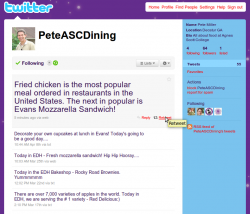

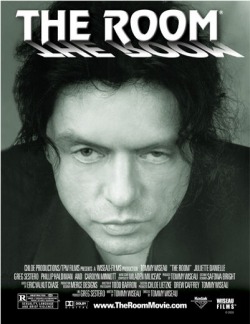
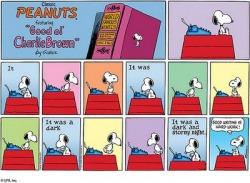
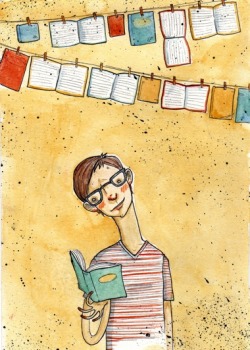
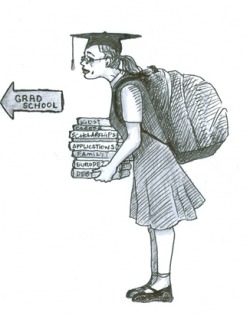
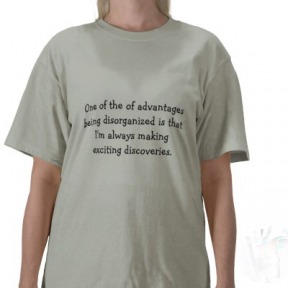
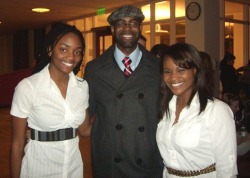
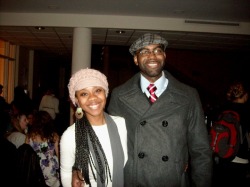
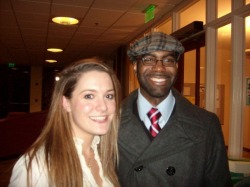
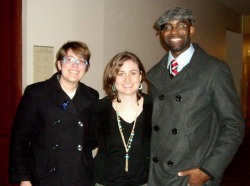
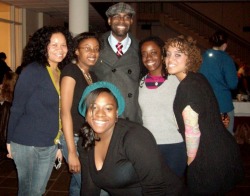
 RSS Feed
RSS Feed